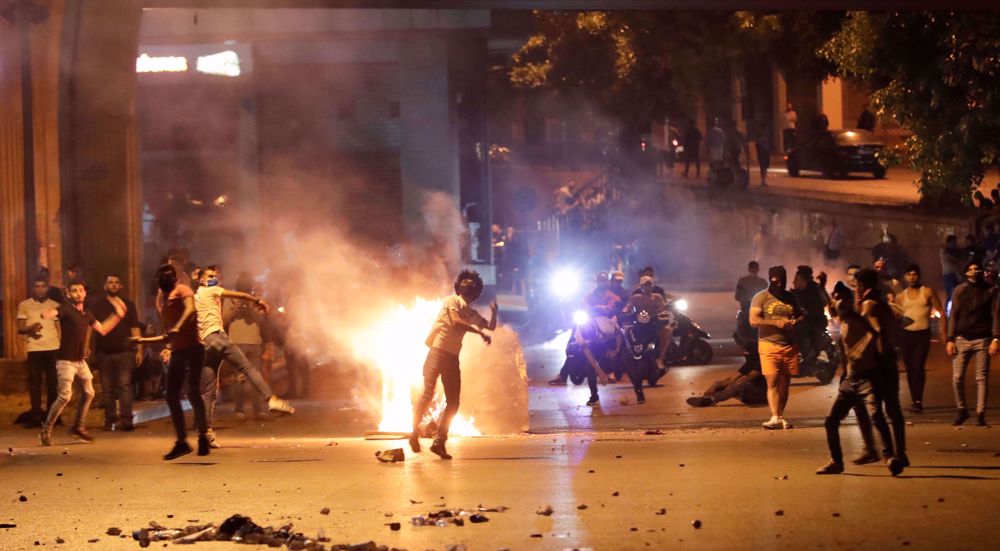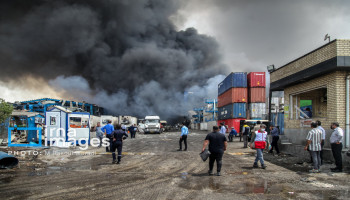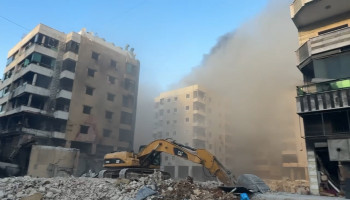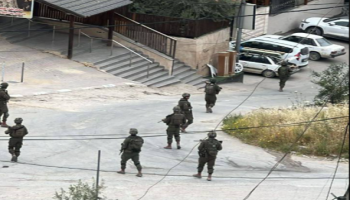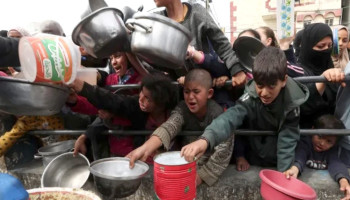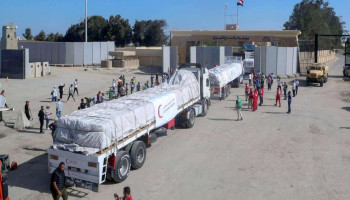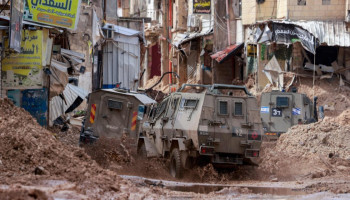The Lebanese interior and municipalities minister has blamed recent violent street protests on foreign meddling and funding, vowing to sue those blocking roads during the riots.
Speaking to al-Manar TV channel on Friday, Mohammed Fahmi said Lebanese authorities are in possession of “certain and confirmed information that foreign interference and financial support are behind the acts of vandalization.”
Earlier this month, a new wave of protests broke out in several Lebanese cities, with the participants calling for the government's resignation while cutting roadways with burning tires and rubbish bins.
They were angry about a rapid fall in the national currency against the US dollar and mounting economic hardship.
Protesters in Tripoli, Lebanon’s second-biggest city, lit a branch of Lebanon’s Central Bank on fire and clashed with security forces who tried to disperse them with tear gas.
Prime Minister Hassan Diab said at the time that the unrest was an attempt to mount a “coup” against his government and manipulate the value of the Lebanese pound.
The Lebanese currency, which had been pegged to the dollar at the rate of 1,500 for nearly 30 years, has lost 75 percent of its value since October 2019, obliterating the purchasing power of many people in the debt-ridden country.
Elsewhere in his remarks, Fahmi said that the “corruption” of those carrying out the riots had “spared us a major disaster.”
“They did not spend all the sums of money that they received from the plotters to spark security incidents,” he added.
The interior minister also warned that “the economic and social situation is a ticking bomb,” noting, however, that security is under control.
“Attacks on citizens and public and private property are prohibited,” Fahmi said. “We will file lawsuits against those who do it. Yes to freedom of expression and assembly but no to the blocking of roads.
Security forces would prevent the blocking of roads as it amounts to “a form of aggression against citizens’ dignity," he pointed out.
On Friday, Diab said during a cabinet meeting that Central Bank Governor Riadh Salameh was accountable for the currency collapse.
Information Minister Manal Abdel-Samad said after the meeting that Diab had confirmed that Lebanon is going through "a major crisis" and that "the Central Bank is responsible for the exchange rate of the dollar."
Diab's government, sworn in at the start of 2020, has put together an economic reform plan and begun bailout talks with the International Monetary Fund (IMF) amid a deepening financial crisis.
Unprecedented anti-government protests erupted in Lebanon last October, forcing then prime minister Saad al-Hariri to step down.
Source: Press TV
Lebanon Blames ’Foreign Interference’ for Riots, Slams Blocking of Roads
السبت, 27 يونيو 2020
